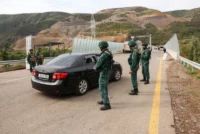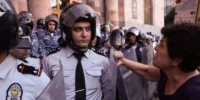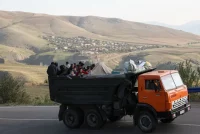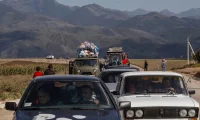
A cry for the refugees of emptied Nagorno-Karabakh: ‘We are nobody’
Azerbaijani television last week showed giant shovels demolishing what had once been the parliament building of the ethnic Armenian breakaway region known as Nagorno-Karabakh. It was a symbolic final blow to an area whose more than 100,000 people have fled, leaving deserted villages and empty streets.
“We are nobody”, said Artak Beglaryan, the former ombudsman of Karabakh and now one of its few public advocates. Like nearly every other Armenian resident of Karabakh, he escaped to neighboring Armenia when Azerbaijani troops took control in September. “It is a ghost country”, said Beglaryan of the rugged, verdant region where he was born.… Seguir leyendo »




















